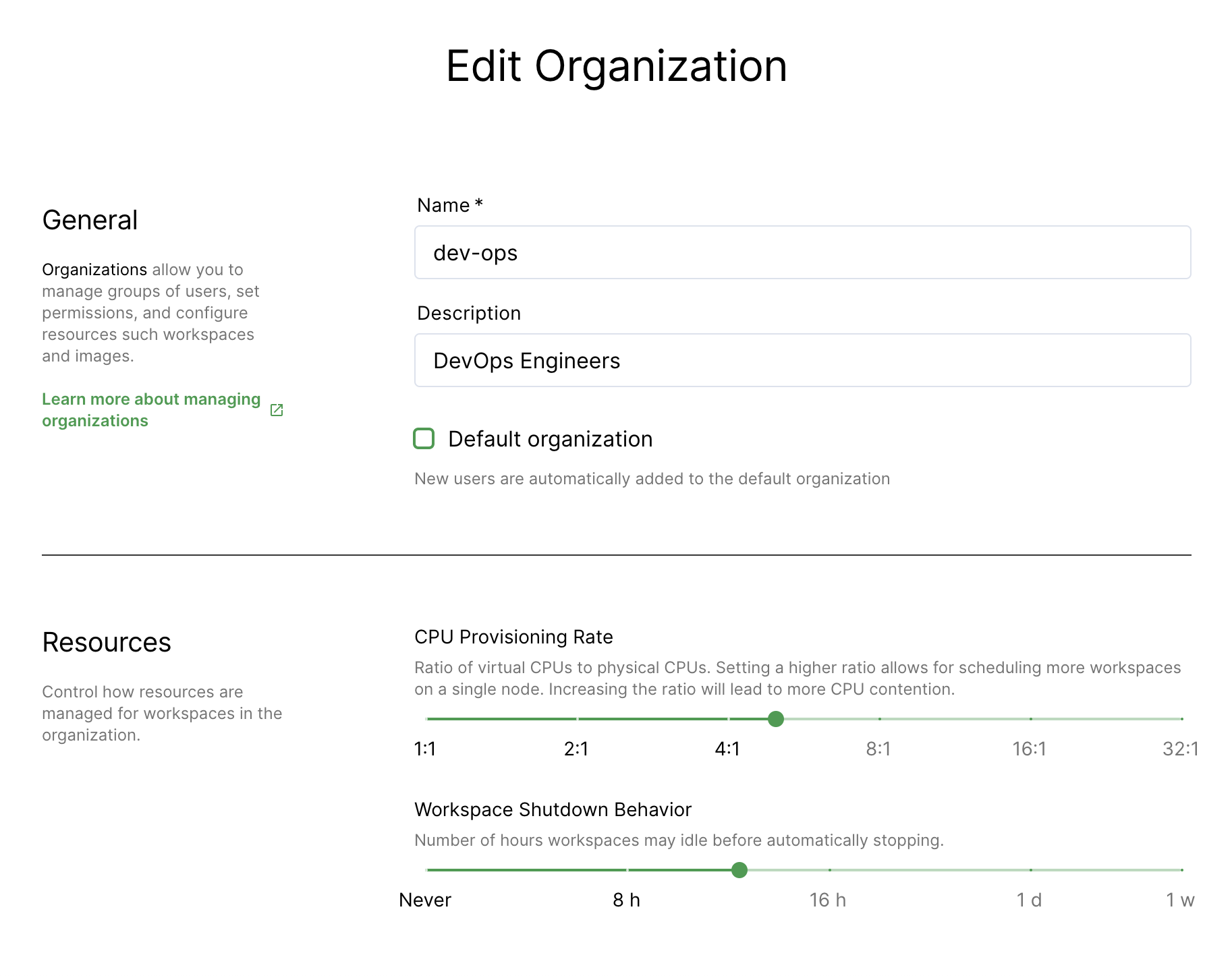The computing workloads of developers are unique in that they don't require consistent access to CPUs; instead, developers typically have short periods of peak usage during builds and compilation followed by long periods of low usage.
Build and compilation performance directly impacts the development experience of a project: faster builds mean faster iteration cycles, leading to greater development velocity. However, traditional approaches to providing developers with more hardware for computationally intensive compilations can lead to wasted resources.
Individual vs. shared resources
Consider a project whose compilation is parallelizable up to 16 CPU cores.
Because each developer would need hardware capable of supporting compilation, you could give everyone laptops with 16 CPU cores. During compilation and build, each machine would see 100% utilization of its resources. However, these processes are relatively quick, so the machine is underutilized the vast majority of the time.
However, sharing resources can allow you to provide your developers with access to the computing resources while minimizing underutilization.
Coder places each developer into an isolated workspace and schedules each developer's workspace onto the same piece of hardware (in this example, the hardware is a machine with 16 CPU cores). Each developer has access to the resources they need during peak load (e.g., compilation, build); this offers them a performant experience when required. However, the shared resources minimize resource underutilization.
Resource contention
One possible issue with shared resources is resource contention.
If the resources on the underlying node become contended, the developers will share CPU cycles on a weighted basis relative to the resource request of the Coder workspace.
However, the nature of developer workflows makes resource contention fairly uncommon since this occurs when several users are performing resource-intensive tasks, such as compilation, simultaneously.
Shared resource configuration in Coder
Five variables determine how resource allocation and usage affect developers and compute costs:
- The Kubernetes Node type (virtual CPU count and memory size)
- The Coder workspace's default CPU and memory limits
- The Coder organization's CPU and memory provision ratios
- The Coder organization's workspace inactivity shutdown threshold
- The magnitude and frequency of code compilation operations



